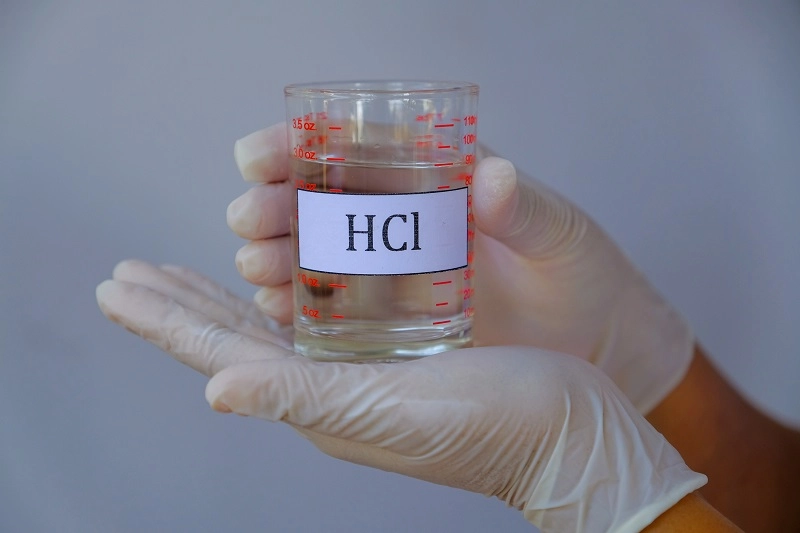- Details
What are the applications of the hydrochloric acid?

Hydrochloric acid is based on the HCl and water. Hydrochloric acid or muriatic acid, as its historic but still used name sounds, has been an important and frequently used chemical compound since the dawn of time. It was discovered by the alchemist - Jabir ibn Hajjan around the year 800. This extremely versatile chemical compound is used in for production of chlorides, fertilizers, dyes, pigments and many other products.
Hydrochloric acid applications
It is used to treat steel, the material used to erect suspension bridges and to build cars and trucks. Hydrochloric acid is also used in the production of batteries, photo-flash bulbs and fireworks. It is also used to produce the gelatin. Gelatin is a food additive used in many products, including marshmallows, pudding and yogurt. The medical industry uses it as an ingredient in medicines and surgical dressings. It is also used in the processing of photographic films and to test the strength of metal alloys.
Production of glucosamine and chitin-based products, such as dietary supplements, shampoos and toothpastes requires the hydrochloric acid to process their raw materials. It can also be found in household cleaners. It is used as an ingredient in toilet bowl cleaners, toilet deodorizers, bathroom cleaners and even laundry detergents. Hydrochloric acid can also be found in the kitchen! It's the active ingredient that makes baking soda work so well - it's what makes the baking soda so effective at removing stains from clothes and counter tops.
See also: WHAT IS THE MOST EFFECTIVE WAY TO DESCALE BOILERS?
Where else is the hydrochloric acid used?
Hydrochloric acid may not be the most pleasant substance to work with, but it has many uses that are essential in our daily lives. Because of its corrosive properties, the hydrochloric acid is used to treat steel and other metals. Apart from above mentioned practical uses, hydrochloric acid is also an important part of industrial processes, such as refining petroleum products into gasoline or diesel fuel.


